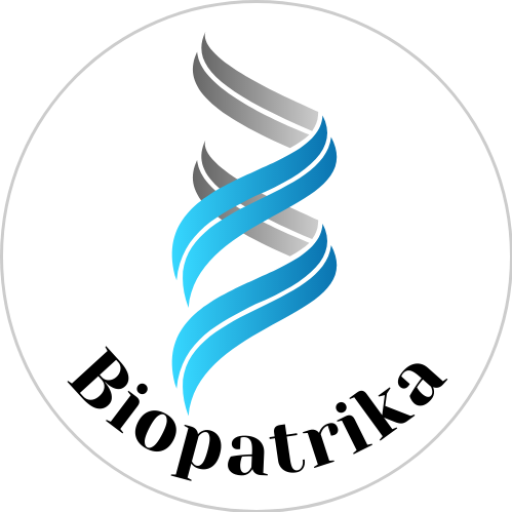- Developed from clay, plant-derived fatty acids, and cellulose, the new coating is a safe, durable alternative to fluorinated chemicals (per- and polyfluoroalkyl substances (PFAS)) that persist in the environment and threaten human health.
- The coating enables stable dropwise condensation, a key mechanism for improving heat transfer in power, cooling, and desalination systems.
- It was noted that the new coating’s performance rivals that of widely fluorinated coatings, opening up possibilities for cleaner, more efficient industrial technologies.
- This development addresses the global effort to phase out PFAS and replace them with environmentally responsible alternatives.
Gandhinagar: The industrial world’s relationship with water-repelling surfaces runs deep. From power plants that require efficient heat transfer to air conditioning systems in massive office buildings, the ability to control how water behaves on surfaces directly translates to increased energy efficiency, reduced costs, and enhanced operational reliability. Yet the very chemicals that enabled these advances have created an environmental crisis, forcing engineers to rethink their approach.
Addressing this dilemma, researchers at the Indian Institute of Technology Gandhinagar (IITGN) have developed a new, environmentally friendly coating that can make metal surfaces highly water-repellent, without relying on harmful fluorinated chemicals. The study, published in the journal Small, reports on the creation of a near-superhydrophobic aluminium surface using naturally derived materials, a safer and scalable alternative to the widely used per- and polyfluoroalkyl substances (PFAS)-based coatings. The eco-friendly formulation combines sepiolite, a clay mineral; myristic acid, a fatty acid found in plant oils; and ethyl cellulose, a biodegradable polymer. Using a simple and cost-effective dip-coating process, the team from IITGN’s Smart Energy & Thermal Transport Lab engineered a thin, durable coating that causes water to bead up and roll off effortlessly, achieving a water contact angle of about 140°, comparable to that of PFAS-based surfaces.
“We designed a nature-inspired hydrophobic surface that achieves a water contact angle of about 140°, comparable to that of widely used PFAS-based surfaces,” said Dr Soumyadip Sett, Assistant Professor at IITGN’s Department of Mechanical Engineering and the principal investigator of the study. PFAS compounds, long prized for their ability to repel water and oil, are increasingly restricted worldwide due to their persistence in the environment. This has earned them the label of “forever chemicals”, with research indicating strong links between the compounds and cancers, immune system problems, and other serious health risks.
“By relying on naturally derived materials to replace toxic synthetic coatings, we bypassed these environmental and health challenges,” explained Ms Arunima Roy, co-first author of the study, and a project associate at the SETT Lab. The team chose sepiolite to form the nanoscale scaffolding needed for water repellency. To overcome the clay’s natural affinity for water, the researchers bonded it with myristic acid, a fatty acid found in coconut and nutmeg oils, thereby making it hydrophobic while ensuring strong adhesion to metals. Finally, the plant-based polymer, ethyl cellulose, was used to bind the coating together, adding extra water resistance and enhancing durability.
In laboratory tests, the coated surfaces maintained stable dropwise condensation, a process in which water vapour forms droplets that quickly detach from the surface rather than spreading as a continuous film. This dropwise mode is known to enhance heat transfer by several measures compared to conventional filmwise condensation. “Our coating achieved condensation heat transfer rates comparable to state-of-the-art PFAS-based surfaces, indicating strong potential for use in thermal power generation, refrigeration, and desalination systems,” explained Ms Mishrana Dutta, co-first author and a project associate at the SETT Lab.
The coating also demonstrated excellent mechanical and chemical durability, retaining its water-repellent properties after repeated abrasion, water impact, and exposure to acidic and basic environments. These results suggest that the new material can withstand real-world operating conditions in industrial applications. “This technology could be a game-changer for sectors that rely on efficient condensation and heat transfer,” remarked Mr Rahul Nallana, a former Research Associate at the SETT Lab, who is pursuing his doctoral studies at Jeonbuk National University in South Korea. Because the process uses abundant natural materials and a straightforward dip-coating method, the researchers believe it can be easily scaled up for industrial production.
Beyond energy systems, the PFAS-free coating can be utilised in water collection, anti-icing, corrosion prevention, and self-cleaning materials, as well as in the biomedical and food industries, where chemical safety is crucial.
Explore more
🎤 Career – Real career stories and job profiles of life science professionals. Discover current opportunities for students and researchers.
💼 Jobs – The latest job openings and internship alerts across academia and industry.
📢 Advertise with BioPatrika – Reach the Right Audience, Fast!
🛠️ Services – Regulatory support, patent filing assistance, and career consulting services.




